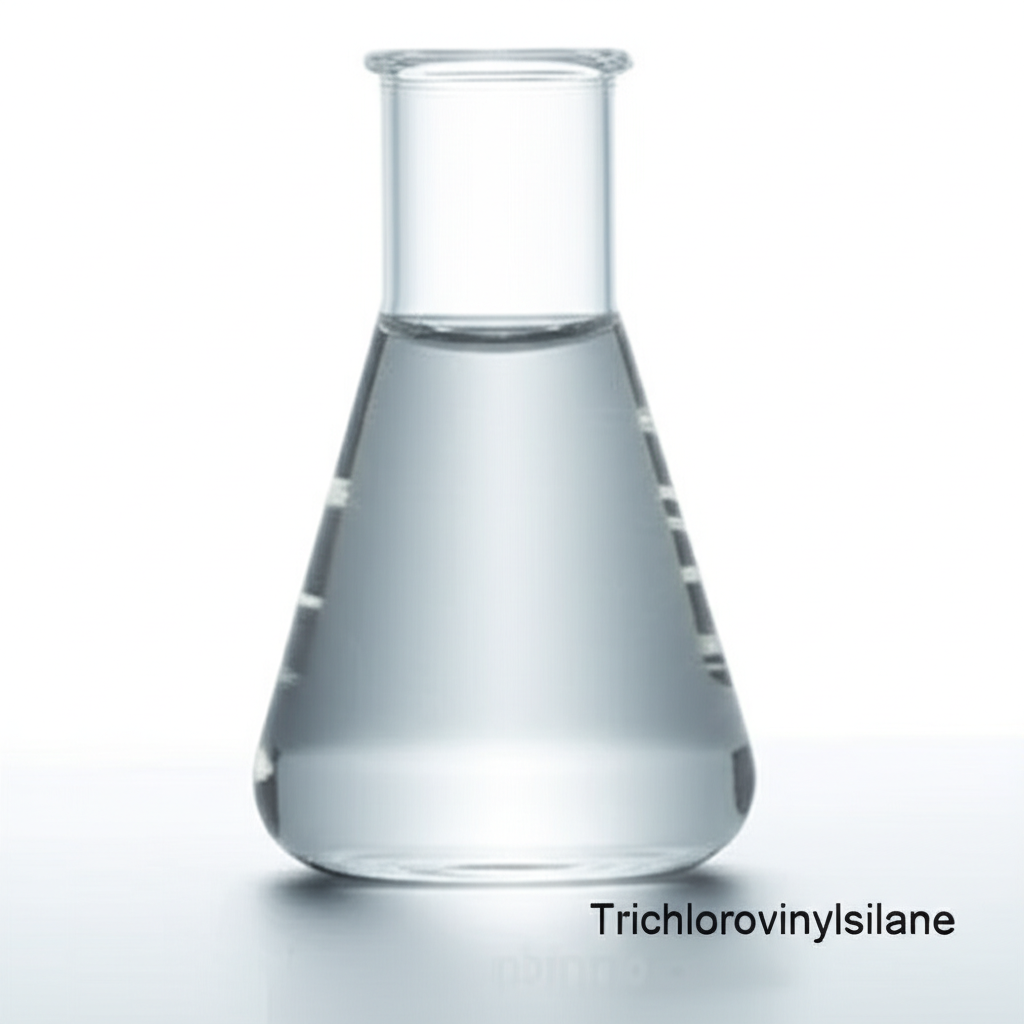Trichlorovinylsilane: Enhancing Material Performance with Advanced Silane Chemistry
Discover the key applications and properties of Trichlorovinylsilane, a vital coupling agent for advanced material solutions.
Get a Quote & SampleProduct Core Value

Trichlorovinylsilane
Trichlorovinylsilane, identified by CAS number 75-94-5, is a crucial chemical intermediate distinguished by its colorless liquid appearance. It plays a significant role in enhancing material properties through its function as a coupling agent.
- Leveraging Trichlorovinylsilane for glass fiber surface treatment significantly improves the adhesion between glass fibers and polymer matrices in composite materials.
- As a vital component in reinforced laminated plastic products, Trichlorovinylsilane's coupling capabilities ensure stronger and more durable end materials.
- The chemical intermediate properties of Trichlorovinylsilane make it indispensable in the synthesis of various silicone-based products, contributing to their unique performance characteristics.
- Understanding the specific trichlorovinylsilane CAS 75-94-5 properties, such as its reactivity and storage requirements, is key to its effective industrial application.
Product Advantages
Improved Material Adhesion
The primary advantage of Trichlorovinylsilane lies in its ability to act as a coupling agent, creating a strong bond between organic polymers and inorganic substrates, thereby enhancing the mechanical properties of composites and adhesives.
Enhanced Durability
By improving the interface between dissimilar materials, Trichlorovinylsilane contributes to the overall durability and longevity of finished products, making them more resistant to environmental factors and stress.
Versatile Application Potential
Its effectiveness in treating glass fibers and its use in reinforced laminated plastics highlight the versatility of Trichlorovinylsilane across various manufacturing sectors, from automotive to construction.
Key Applications
Composite Materials
Trichlorovinylsilane is extensively used in the treatment of glass fibers, enhancing their compatibility with polymer resins in the manufacture of high-performance composite materials.
Reinforced Plastics
Its application in reinforced laminated plastic products leads to improved mechanical strength, thermal stability, and electrical insulation properties, crucial for demanding industrial applications.
Adhesives and Sealants
As a coupling agent, Trichlorovinylsilane improves the adhesion of adhesives and sealants to various substrates, ensuring reliable and long-lasting bonds in diverse assembly processes.
Silicone Synthesis
The compound serves as a key intermediate in the production of silicones, contributing to the creation of materials with unique properties like flexibility, water resistance, and thermal stability.
